From MBC to Al-Arabiya, Saudi media bent on vilifying resistance to oblige Zionists
By Alireza Akbari
On Friday, a report by Saudi broadcaster MBC sparked widespread anger and outrage for grouping regional resistance movements and their leaders under the label of "terrorism."
The report, titled 'Millennium: Get Rid of Terrorists', included leaders from the Gaza-based resistance group Hamas, notably former leader Ismail Haniyeh and his successor Yahya Sinwar, branding the movement dedicated to the liberation of occupied al-Quds as the "new face of terrorism."
It also featured top leaders from the Lebanese resistance group Hezbollah, including the martyred leader Sayyed Hassan Nasrallah and senior commanders Fuad Shukr and Imad Mughniyeh.
The report also targeted Iranian top anti-terror commander Lieutenant General Qassem Soleimani and former Iraqi resistance commander Abu Mahdi al-Muhandis, both assassinated by the United States.
It ignored the fact that Israeli occupation forces had assassinated these resistance leaders and failed to address the ongoing genocide and the humanitarian catastrophe the Tel Aviv regime has inflicted on the region, which has claimed the lives of at least 42,000 people in Gaza and over 2,400 in Lebanon.
The MBC report drew widespread condemnation, not only online but also on the streets of Baghdad, where hundreds of angry protesters stormed the offices of the Saudi channel.
The fallout continued as the Iraqi government, triggered by the protests, revoked the license of the channel and ordered the closure of its bureau in the capital Baghdad.
Iraq’s Communications and Media Commission imposed a ban on the channel, citing repeated “violations of Iraqi broadcasting regulations” and the network’s attacks on "heroic resistance leaders, anti-terror commanders, and martyrs."
Activists calling for a boycott of the channel protested against the report's depiction of resistance leaders, its portrayal of Hamas, and its omission of the ongoing Israeli genocide in the besieged Palestinian territory and Lebanon. They emphasized that the report displayed clear bias.
Protesters in Baghdad and other Arab capitals said the report described resistance leaders as the root cause of the region's problems, disregarding and distorting the reality that the Israeli regime’s warmongering, war crimes, and crimes against humanity have displaced over 1.7 million people in Gaza and more than 1.5 million in Lebanon since October 2023.
They further noted that the report attempted to divert attention from the ongoing Israeli aggression in Gaza and Lebanon, misleading the audience by labeling resistance leaders as “terrorists.”
The report used emotionally charged language, such as referring to the "Iraqi militia" instead of the Iraqi resistance, to provoke negative reactions from viewers, experts noted.
Iraqi govt. bans Saudi MBC channel for disrespecting resistance figures https://t.co/57WCRcTXfa
— Press TV 🔻 (@PressTV) October 19, 2024
In its dictionary meaning, “resistance” refers to the act or power of opposing or withstanding something but “militia” carries a negative connotation referring to irregular armed groups involved in violent or extremist activities.
The report deliberately manipulated facts about the Israeli regime's assassination of the resistance leaders and this significant omission distorts the context of the narrative, as it fails to show the targeting of these figures by Israeli forces, according to media experts.
By leaving out such a key fact, the report reframes the discussion, diverting attention from Israel’s role in these assassinations and painting the resistance leaders in a negative light, they said.
Furthermore, the report labeled these resistance leaders as "terrorists" without providing any credible evidence to substantiate the claim, reflecting a clear logical fallacy.
By placing the blame solely on the resistance leaders, the report shifted attention away from the Israeli regime's ongoing aggression, occupation, and human rights violations in the Gaza Strip and Beirut.
Experts who spoke to the Press TV website said the report aligns with a broader media trend of running narratives sympathetic to the Tel Aviv regime, particularly in the context of the ongoing Israeli genocide in Gaza, which has claimed nearly 43,000 lives in the past year.
By selectively shaping the narrative, the report sought to obscure the brutal realities of the Israeli occupation and the humanitarian crisis unfolding in both Gaza and Lebanon.
MBC is not alone though. Saudi-owned Al-Arabiya channel has also been found complicit in the Israeli-American genocide in Gaza and Lebanon by peddling and amplifying Zionist narratives.
The channel recently aired an interview with Israeli President Isaac Herzog, which was hosted by the channel's main presenter and anchor Riz Khan in an online format.
Khan’s opening question was widely seen as a prime example of biased journalism. He asked Herzog, “The latest chapter of violence in the Middle East began with the Hamas attack on Israel one year ago. How do you expect it to end across the region?”
Experts say the question lacked context and objectivity, as it framed Hamas as the aggressor while ignoring the fact that Operation Al-Aqsa Flood, launched by the Gaza-based resistance movement, was a retaliatory response to Israel's years-long aggression in Gaza and the occupied West Bank.
Hamas: Saudi MBC channel’s report makes it complicit in Israeli genocidehttps://t.co/jHn0IaYEbI
— Press TV 🔻 (@PressTV) October 20, 2024
Additionally, the anchor's choice of terminology came under fire for describing the operation as a “Hamas attack” instead of a “Hamas operation,” with analysts arguing that this misrepresented a legitimate military action as an indiscriminate act of violence.
Experts and social media users also took umbrage at the way the host treated the aggressor as though it were the victim of the ongoing war, seeking the real aggressor's opinion on stopping the violence.
As the interview was aired, criticism intensified, with many accusing Saudi media of promoting narratives pitched and promoted by the Tel Aviv regime and its lobbyists in the West.
Back on September 24, MintPress News in a story shared on X (formerly Twitter), stated that the Saudi-owned TV channel was “working directly with the Israeli Occupation Forces.”
The outlet also exposed the exchange of favors between Israeli forces and Al-Arabiya.
“According to a report by Kan, the entity's national broadcaster, the Israeli army shares exclusive breaking news with the Saudi-owned Al-Arabiya channel in exchange for ‘favorable coverage’ of the Zionist entity,” MintPress reported.
MintPress also highlighted the terminology used by Al-Arabiya in its coverage of the Israeli-American genocidal war against Palestinians in the Gaza Strip.
“During the genocide in Gaza, the collaboration between the Israeli army and Al-Arabiya was particularly evident in the information presented, with captured Israelis referred to as "hostages" rather than "captives" and terms such as "occupation" and "Zionist entity" avoided when describing Israeli forces. It also refrained from calling those killed in Gaza as martyrs.”
The report described this “language shift” as “an attempt to shape a more favorable image of the Zionist entity for the Arabic-speaking audience.”
Algeria also responded to Al-Arabiya’s biased reporting by suspending the Saudi TV channel’s license to operate in the country, citing “reporting bias.”
Meanwhile, the Saudi-based English newspaper Arab News has also come under fire for following in the footsteps of MBC and Al-Arabiya by amplifying the narratives of Israeli and Western media outlets.
Since Israel launched its genocidal war on Gaza, the US has maintained "iron-clad" support for Tel Aviv, providing financial, political, and military backing that has sustained Israeli aggression in the West Asia region for over a year.
A closer look at Saudi media's coverage of Israeli aggression against Gaza and Lebanon, coupled with revelations of links between Al-Arabiya and Israeli forces, makes it clear why Saudi outlets are echoing pro-Israeli narratives—even at the expense of losing their credibility, say experts.
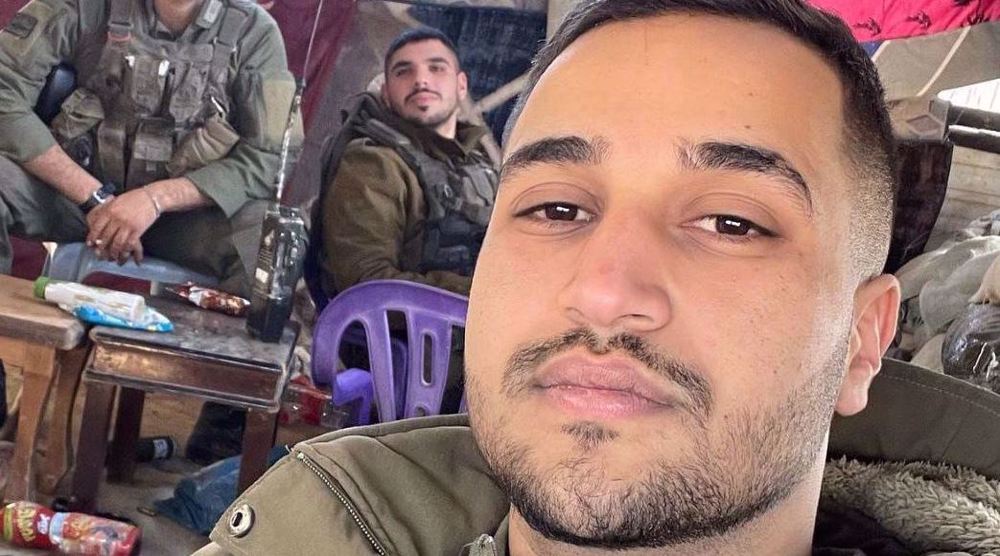
Advocacy group files war crimes case in US against Israeli soldier
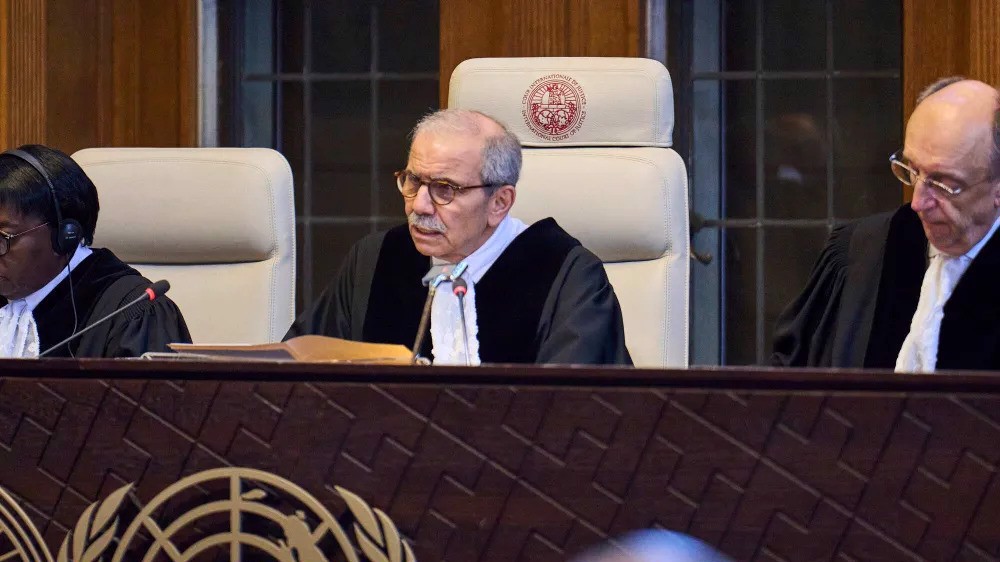
Israel secures 6-month delay in Gaza genocide case at ICJ
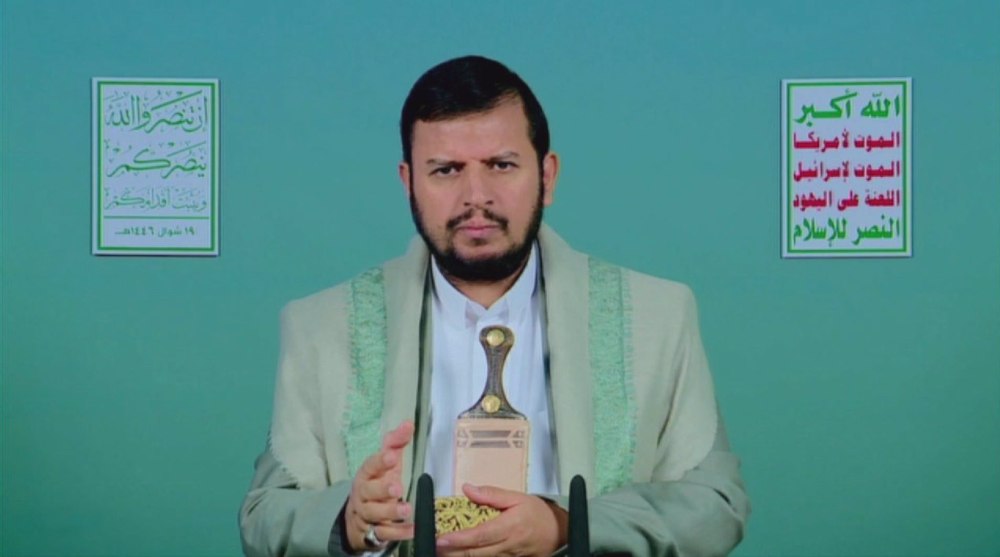
Houthi says US encouraging Gaza genocide, calls for arming Palestinians
VIDEO | GoT actress on life before and after Gaza
Jolani in Time's 2025 influential list amid sectarian killings in Syria
FM: Iran to 'judge' how to proceed after Saturday talks in Rome
Pezeshkian hails Iran’s military ‘preparedness’ on Army Day
Two Palestinians killed as Israel expands deadly raids in West Bank
French journalists stage 'die-in protest' in support of Palestinian reporters
Massacre in Gaza: Israel kills over two dozen, including family of 13
VIDEO | Press TV's news headlines


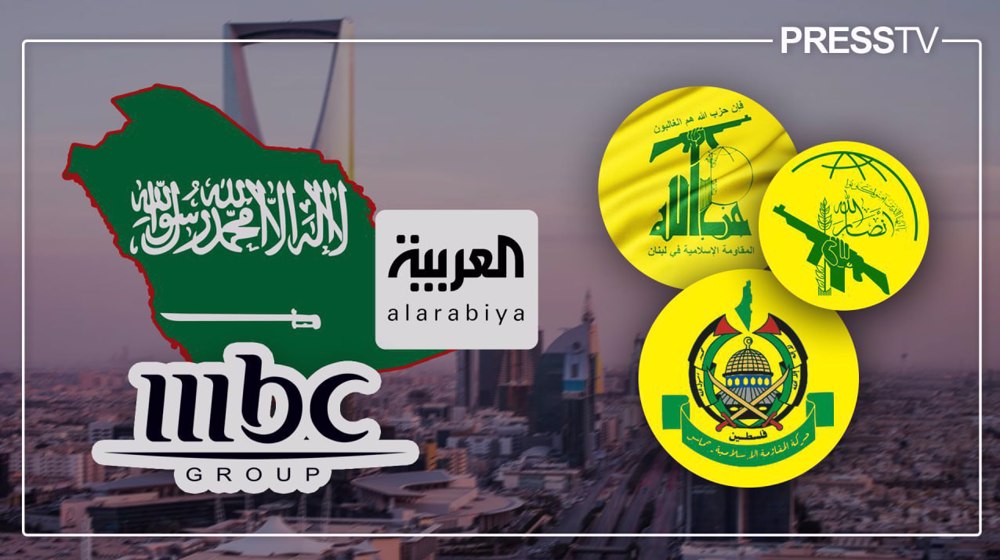



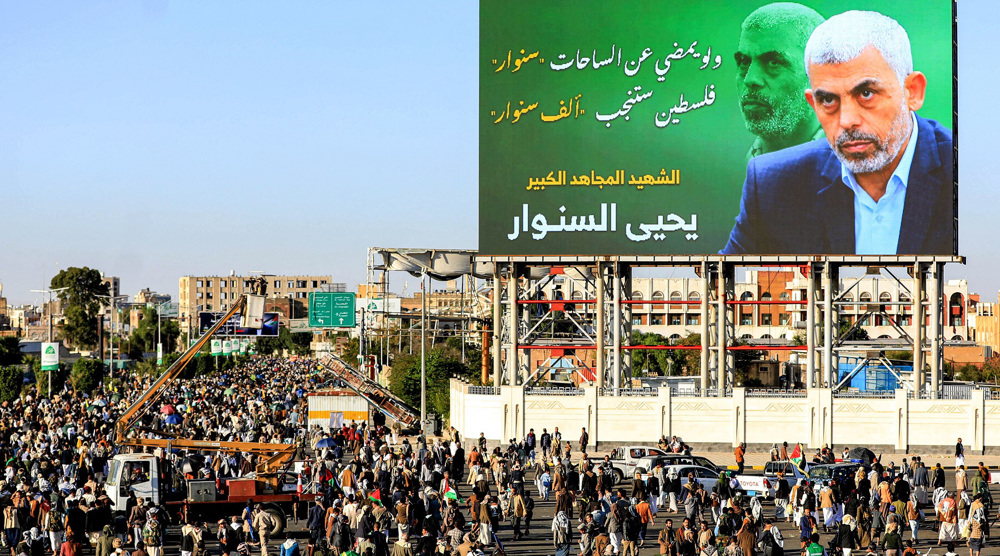
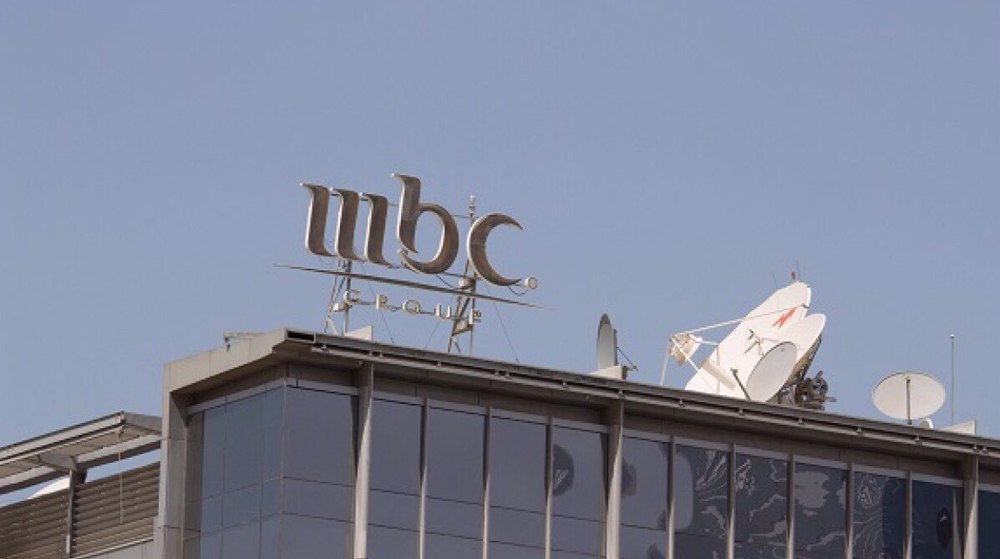
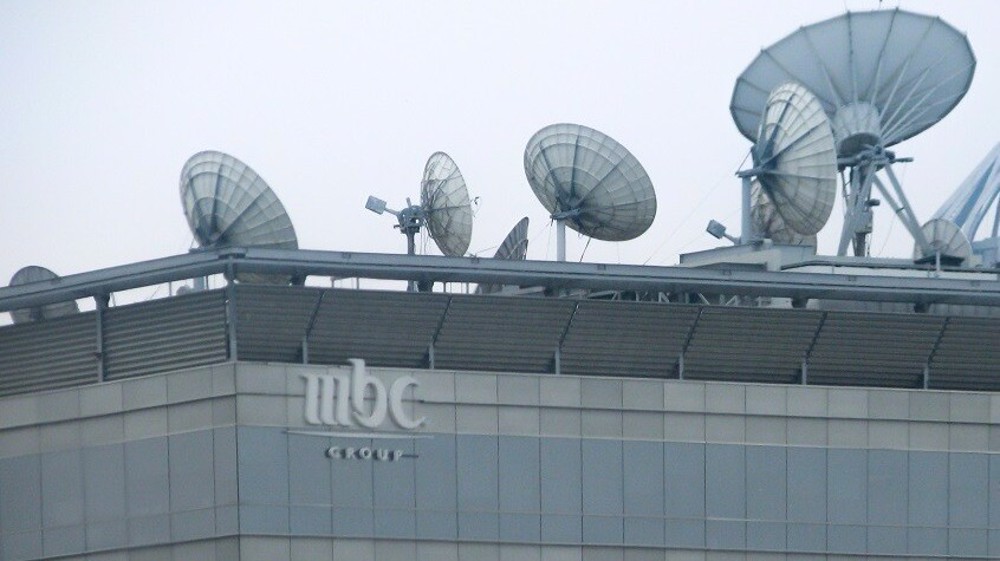


 This makes it easy to access the Press TV website
This makes it easy to access the Press TV website